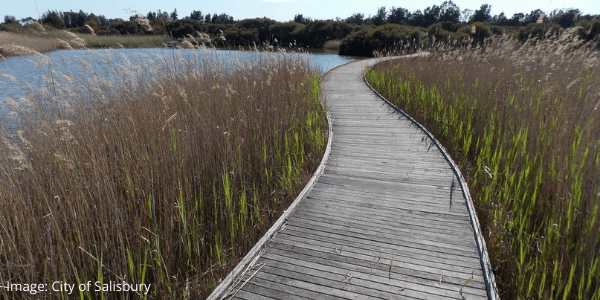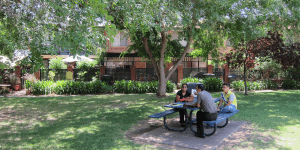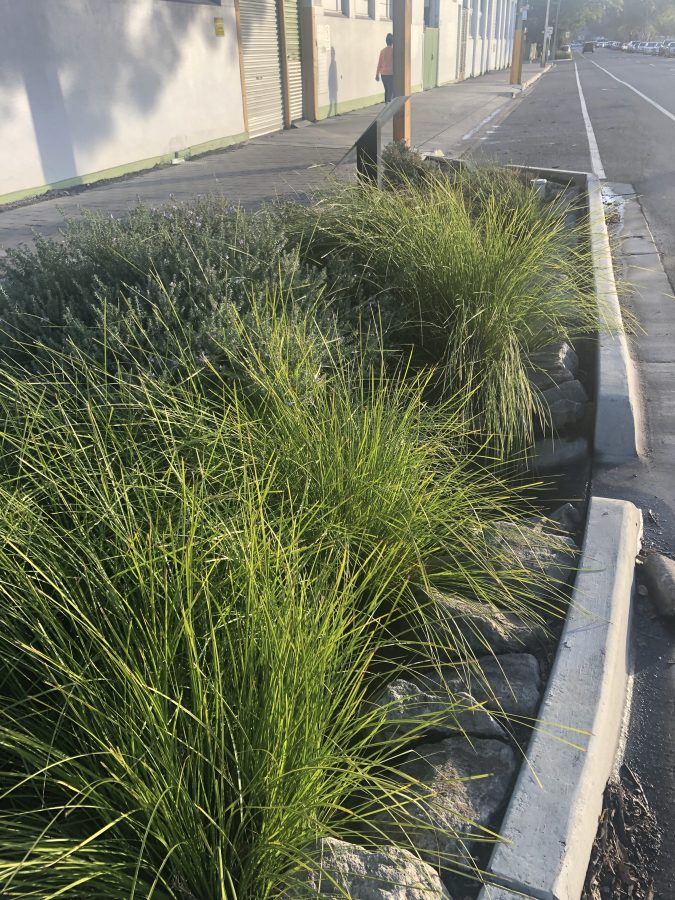
Setting future urban water directions
As South Australia faces an uncertain climate future, the role of alternative water resources in the urban water mix is becoming increasingly important. A group of urban water leaders met on 8 September 2021 at the Glenunga Hub to discuss the Department for Environment and Water’s suite of position papers on Setting future urban water directions, which are open for comment until 1 October 2021.
Following are some of the highlights of that discussion.

The vision and governance

Images: Stock photo; City of Mitcham; Water Sensitive SA; Jason Tyndall
Adelaide’s existing recycled wastewater and stormwater use schemes provide strong foundations for a fully integrated network of water resources to deliver cooler, greener, wilder and climate resilient communities. However, to make this a reality the Glenunga Hub group would like to see:
- a collective vision across all entities with a role in urban water management to clarify:
- are we seeking greening and lifestyle outcomes? People care about: where they can take their kids to sport, walking with elderly relatives, where to go for a coffee, doing the right thing/living sustainably – if it is made easy
- do we want watercourse in their natural state, where possible?
- how much water is needed to deliver a National Park City and what water sources will be used?
- how much water does the manufacturing industry and urban horticulture need and what sources will be used?
- what is the role of urban food in this vision?
- governance structures that enabled holistic management of watercourses and effective integration of flood management solutions
- a financial structure that matures to meet the needs of a city that is growing and densifying.
In developing a vision, some matters to consider:
- River Murray water use is approximately equal to the volume of stormwater runoff from Adelaide. Is stormwater the solution to wean Adelaide off River Murray Water?
- We no longer have a “water crisis”; our communities now face a “heat crisis”. How we access and use water in the environment will be our pathway out of the associated health crisis of the predicted increase in extreme heat days (over 35oC) a year from 20 to 26 days by 2030, or 50 days by 2090.
Source: Bureau of Meteorology (2019) Climate data online. CSIRO and Bureau of Meteorology (2018) Climate projections. - A communication strategy is needed with simple messaging to bring the community along the journey.

Image: Baden Myers
What is achievable?
The Glenunga Hub Group were optimistic that the technology exists and the solutions are known to build a cost effective integrated water management network across Adelaide. So, what were some of their ideas?
- By rethinking our urban water management governance we can deliver: Living streams (daylighting creeks), greener landscapes, urban cooling, walkable streets for wellbeing and pollutant removal. All outcomes that that pits and pipes just cant offer.
- Third party access to water supply networks, facilitated by technology to purify stormwater from Council-managed aquifer recharge schemes will be key.
- Review the Water Industry Act 2012, and take learnings from the reform of the energy sector and apply similar principles to the urban water industry.
- As stormwater infrastructure reaches the end of its life, use the one in 60-year opportunity of the asset renewal process to provide a mechanism to deliver a broader range of benefits to the community, in particular urban greening.
- Provide better mechanism for recommendations with stormwater management plans regarding non-structural policy solutions, to be adopted within the planning system.
- Integrate water back into the landscape where it falls by providing wider verge widths to accommodate passive infiltration and streetscape pollution removal via infiltration system, raingarden, etc. – the idea of a sponge city.






